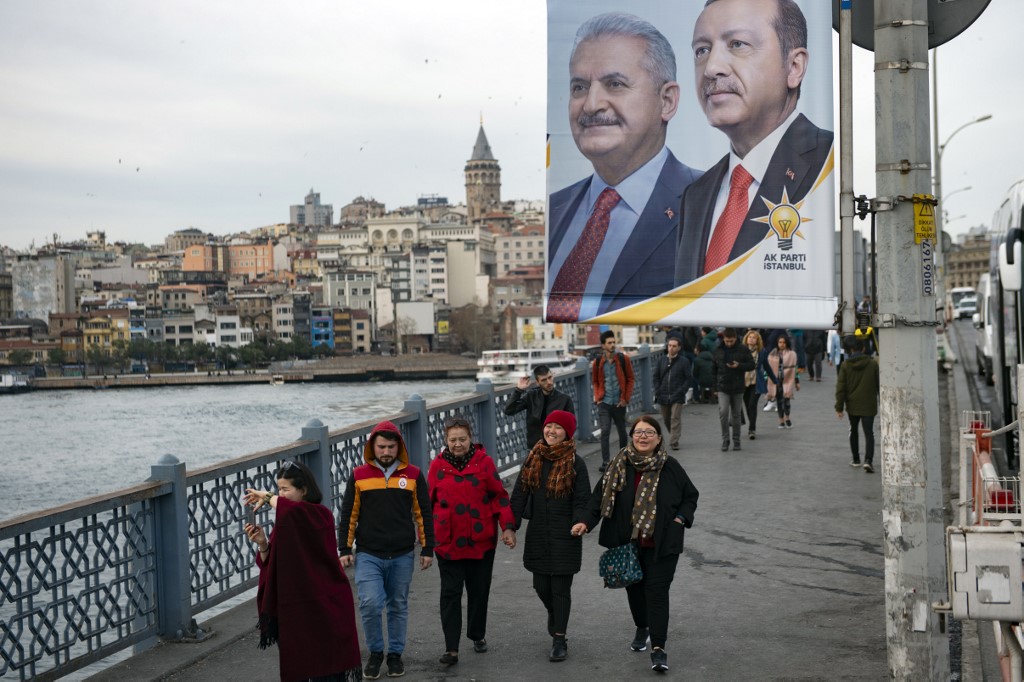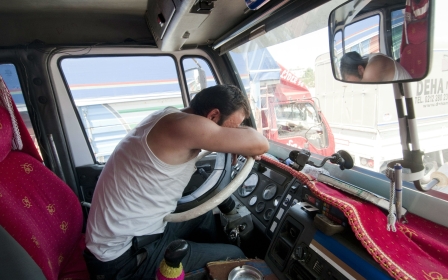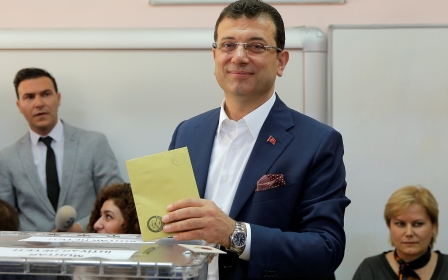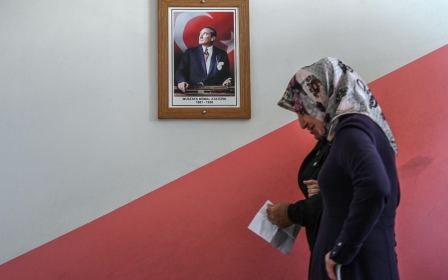'The heart of the country': Why losing Istanbul is about more than politics for Erdogan
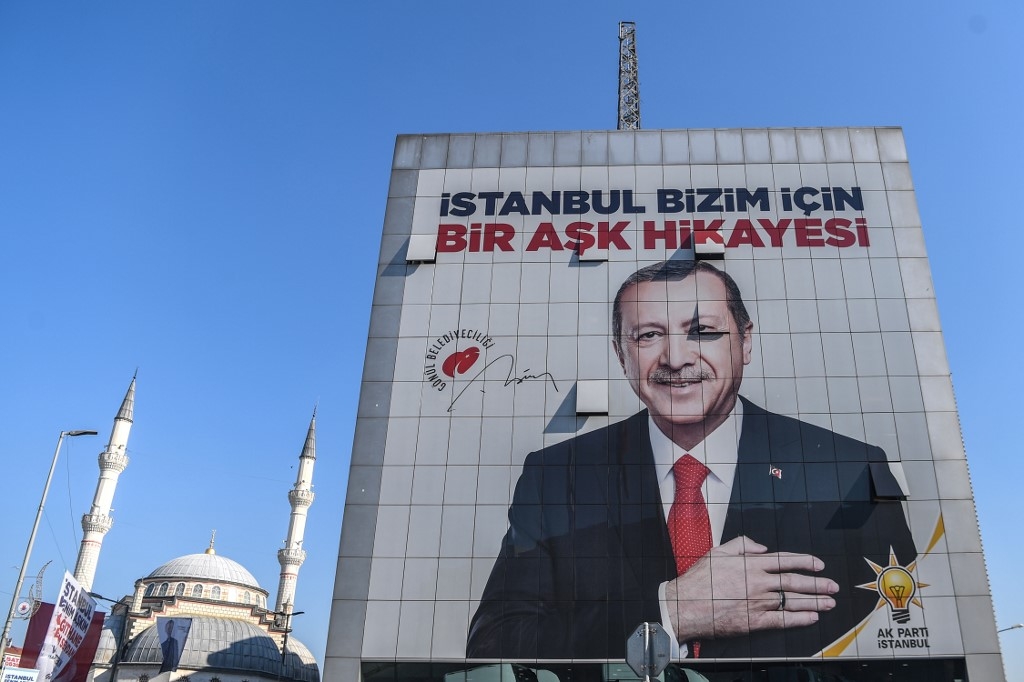
Turkey’s ruling Justice and Development Party (AKP) continues to contest its apparent defeat in last month's Istanbul mayoral election, even after the Supreme Election Board (YSK) rejected its call for a full recount across most of the city's electoral districts.
The AKP indicated on Tuesday that it could still challenge the result of the election after Turkish President Recep Tayyip Erdogan said that "organised crime" at ballot boxes had influenced the outcome and suggested that a fresh election could be held.
If confirmed, victory for Ekrem Imamoglu, the candidate for the opposition Republican People's Party (CHP), over Binali Yildirim, a former prime minister and close ally of the president, would mark a significant setback for Erdogan in Turkey's biggest city where he launched his own political career as mayor between 1994 and 1998 and which has remained under AKP control ever since.
Yet beyond its symbolic importance as Turkey's economic and cultural capital, Istanbul Metropolitan Municipality (IBB) is also a battleground between the ruling party and the opposition due to its vast budgetary resources and employment opportunities.
Budget equivalent to defence ministry
New MEE newsletter: Jerusalem Dispatch
Sign up to get the latest insights and analysis on Israel-Palestine, alongside Turkey Unpacked and other MEE newsletters
According to official statistics, Istanbul's 2018 consolidated budget including municipal subsidiaries was around 42.6 billion Turkish Lira ($7.5 billion).
That figure is almost equivalent to the roughly $8bn budget of the Turkish defence ministry and is more than other ministries including the justice ministry, the health ministry and the foreign ministry.
'If we lose Istanbul, we lose Turkey'
- Recep Tayyip Erdogan
Current Istanbul Mayor Mevlut Uysal said last June that the municipality along with its subsidiaries was providing employment to more than 80,000 workers.
“If we lose Istanbul, we lose Turkey,” Erdogan once said about the city's importance for his political power.
As mayor, Erdogan rose to national and international prominence on the back of a number of defining achievements popular with residents that included better waste collection, and improved air and water quality.
Analysts say Istanbul was a boon for ruling AKP cadres and friendly businessmen for the last 15 years as public tenders and contracts were granted to allied construction companies.
“Istanbul municipality is an economic framework that produces and then allocates significant capital resources. Some of its subsidiaries are listed among the 500 largest companies in the country. For the AKP, losing Istanbul means losing the heart of the country,” said Bahadir Ozgur, an economy columnist from independent news platform Gazate Duvar.
An internal report disseminated by the Istanbul Municipality indicated that until 2018, the AKP has also granted roughly $150 million to foundations close to the government.
“Erdogan has been using some of these foundations to reach out to young voters because surveys show he lost their support. He has been complaining about not having the cultural potency in the country as well. Losing the capital of the Turkish cultural world will add to his worries,” Nesrin Nas, an economist and former MP, told Middle East Eye.
Yalcin Karatepe, a professor at Ankara University, told Turkish media earlier this month that municipal authorities' powers to issue zoning and construction permits, along with their control over land allocation and evaluation, effectively meant that they were overseeing economic development projects worth billions of lira to the companies involved.
“The corporations who get municipal contracts, after a while, begin to provide financial support to the affiliated political party,” he said.
'Lame duck'
If Imamoglu is confirmed as the city's next mayor later this month, a new test already awaits him.
The AKP holds the majority in the provincial assembly that has the last say on municipal budgetary issues. Erdogan himself earlier this month was taped calling Imamoglu a “lame duck".
In a separate press statement last Friday, Erdogan said the AKP majority in the assembly could act as a necessary check and balance on the mayor.
“If the mayor doesn’t have the majority’s backing in the assembly, he cannot man the commissions as he wants and cannot pass the budget,” he said.
Ersin Kalaycioglu, a professor at the Istanbul-based Sabanci University, said it was still possible to successfully govern major cities such as Istanbul and Ankara without financial support from the central government if the right financial model and sound budgetary discipline are applied.
But some reports in Turkish media have alleged that a new law is being drafted by the government to authorise the president, instead of the mayor, to decide on major municipal contracts.
“We know that most of the mega projects such as the new Istanbul airport, the third Istanbul bridge and others have been undertaken by government-allied companies such as Kalyon, Kolin and Limak,” Nas said.
Five of those companies were listed by the World Bank’s 2018 Private Participation in Infrastructure Database as among the top 10 companies that were awarded public contracts worldwide along with US and Brazilian corporations.
For now, however, Erdogan appears set to lose one of the ever-present assets on which his 25-year political career has been built.
"It was very important for him. Now it is gone," said Nas.
This article is available in French on Middle East Eye French edition.
Middle East Eye delivers independent and unrivalled coverage and analysis of the Middle East, North Africa and beyond. To learn more about republishing this content and the associated fees, please fill out this form. More about MEE can be found here.


